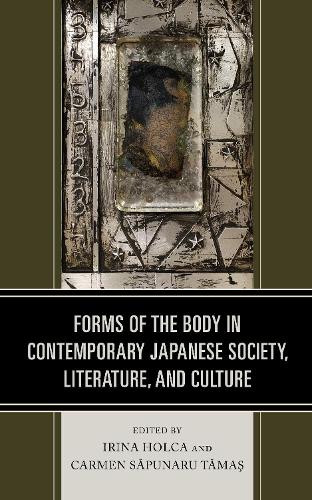
Forms of the Body in Contemporary Japanese Society, Literature, and Culture
(Paperback)
Available Formats
Publishing Details
Forms of the Body in Contemporary Japanese Society, Literature, and Culture
By (Author) Irina Holca
Edited by Carmen Sapunaru Tamas
Contributions by Alina E. Anton
Contributions by Luciana Cardi
Contributions by Jennifer Coates
Contributions by Caitlin Coker
Contributions by Andrea De Antoni
Contributions by Galia Todorova Gabrovska
Contributions by Shun Izutani
Contributions by Emerald L. King
Bloomsbury Publishing PLC
Lexington Books
21st December 2021
United States
Classifications
Professional and Scholarly
Non Fiction
Literary studies: c 1900 to c 2000
306.40952
Physical Properties
Paperback
449
Width 153mm, Height 231mm, Spine 17mm
431g
Description
This collection brings together fifteen chapters written by scholars specializing in disciplines ranging from anthropology and sociology to literature, film, and performance studies. These scholars analyze complex questions about how the body is lived and imagined as a locus of meaning-making in contemporary Japan. Exploring such topics as mind-body dualism, aging and illness, spirit possession, beauty, performance, and gender, this collection addresses the wide array of socio-cultural and literary contexts in which the body is interpreted in Japanese culture and thought.
Reviews
The body functions not only as a ground for the unique particularities of individual subjectivity, but also as a model of universality that mirrors the community and the society at large. Through this connection between the individual and the whole, the body thereby gives physical shape to the universal order and its microcosmos, while likewise serving in modern society as the political field through which the conflicts and contradictions between the two become visible. It is the nature of this field of body politics that Irina Holca and Carmen Spunaru Tma illuminate in their exploration of the varying representations of the body across contemporary Japanese literature, performance, and popular culture. -- Hideto Tsuboi, International Research Center for Japanese Studies
This edited volume is a fresh and very rich addition to our understanding of a crucial topicthe bodyas thought, felt, and acted by contemporary Japanese. It will enrich the field beyond Japanese studies, since it brings together two important elements; in addition to familiar names in Japanese studies, the editorsboth Romanians with Ph.D.s from Japanese universitieshave included authors from highly diverse backgrounds, and their ethnographies engage with literature, performing arts, and everyday behaviors, rather than only social science materials. -- Emiko Ohnuki-Tierney, University of Wisconsin
This is a refreshing collection of articles addressing the subject of the body from a variety of appealingly eclectic angles. Drawing on less well-known insights gathered by social and cultural anthropologists as well as literature scholars, the chapters offer surprise after surpriseapproaches that bewilder the boundaries between human, animal, and spirit, and that amuse as well as inform. This is highly recommended for anyone interested in learning more about Japan's cultural creativity. -- Joy Hendry, Oxford Brookes University
Author Bio
Irina Holca is associate professor at the University of Tokyo.
Carmen Spunaru Tma is associate professor at the University of Hyogo.
